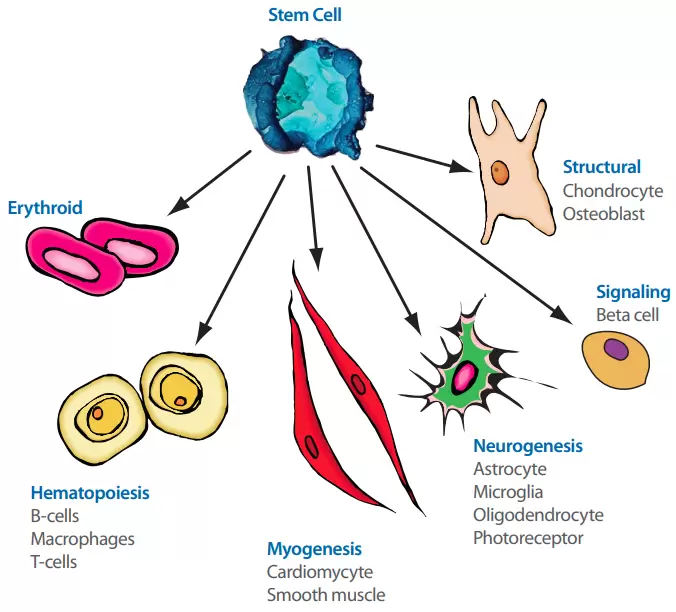
Tools for Stem Cell Research
Pluripotency Induction | Differentiation Analysis | Advanced in vitro Models
Stem cells are undifferentiated cells that can remain with the capacity to develop into specialized cell types. Specific triggers are needed for a stem cell to develop into a skin, heart, or lung cell, or any of the other cell types with specific functions in the body; otherwise the stem cell maintains itself in a state of long-term self renewal via mitotic division. Due to these unique properties of differentiation and rejuvenation, stem cells are being evaluated for use in cell-based therapies for diseases such as cancer, and neurodegenerative and muscular diseases.

iPSC-derived Human Cells
To enable the generation of advanced, more human-relevant in vitro models for research, toxicity studies and drug discovery, human induced pluripotent stem cells (iPSCs) differentiated into specialized cell types, including neurons, neuroinflammatory cells, muscle cells and cardiac cells, are offered.
• Neurons: Cortical excitatory neurons, striatal neurons, cortical inhibitory interneurons, sensory neurons, motor neurons
• Neuroinflammatory Cells: Microglia, astrocytes
• Cardiomyocytes: Atrial cardiomyocytes, ventricular cardiomyocytes
Induce and Monitor Pluripotency or Track Differentiation
In addition to a large selection of stem cells, induced pluripotent stem cells and feeder cells, BioCat offers comprehensive tools for investigating stem cell differentiation and pluripotency. The Stem Cell Differentiation Reporter and Pluripotency Promoter Reporter Systems apply cell-specific promoters and a fluorescent reporter for monitoring differentiation and pluripotency, respectively, in real-time. With the Pluripotency Response Reporter System you can determine the pluripotent state of stem cells using constructs expressing copGFP and luciferase in response to Oct4 or Sox2 activity. mRNA transcripts or lentiviral particles for the expression of pluripotency factors like c-myc, Klf4, Lin28, Nanog, Oct4 (POU5F1, Oct3/4), Sox2 enable cellular reprogramming. Kits for stem cell characterization using the stem cell marker alkaline phosphatase (AP) and for stem cell quantification and isolation are also available.